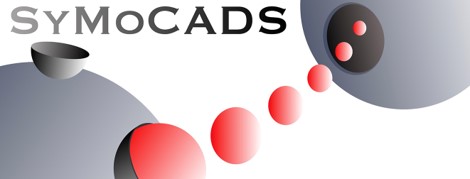Mini Lectures
In each lecture period, “mini lectures” at an equivalent of 0.5 SWS (i.e., 7 x 45 min) each will be offered during the qualification days. Each doctoral researcher has to attend at least ten mini lectures, preferably in the first two years of her/his program. Further mini lectures will be added according to the needs of the RTG. Within the first four weeks of each doctoral project, the corresponding mentoring team chooses together with the doctoral researcher ten mini lectures from this pool. Based on the individual planning for each doctoral researcher, the RTG coordinator schedules the mini lectures for the entire cohort. The mini lecture program consists of five pillars:
(A) Engineering Background,
(B) Science Background,
(C) MC and Applications,
(D) Lab Courses,
(E) Contributions of External Partners.
Pillars (A)-(C) convey the theoretical background for the MC research problems tackled in the RTG in a compact manner, whereas pillar (D) provides the doctoral researchers with hands-on knowledge regarding the relevant experimental methods. The mini lectures can be further categorized into lectures that provide the general background knowledge needed for the analysis and design of MC systems and more specialized lectures that are tailored towards specific clusters. While all mini lectures are open to all RTG doctoral researchers, 5 background lectures and 5 cluster specific lectures are mandatory to facilitate effective collaboration within and across clusters. If a doctoral researcher has already taken a corresponding course in her/his master’s program, the mandatory lecture can be replaced with a different lecture. The proposed structure ensures that all doctoral researchers take both lectures and lab courses which will promote the collaboration between doctoral researchers working on more theory-oriented and more experimental research projects. In addition, mini lectures given by external partners in pillar (E) ensure close collaboration and exchange of ideas with the scientific community and the possibility for fast acquisition of knowledge potentially relevant for specific doctoral projects. The mini lectures will also be open to the SyMoCADS student research assistants.

